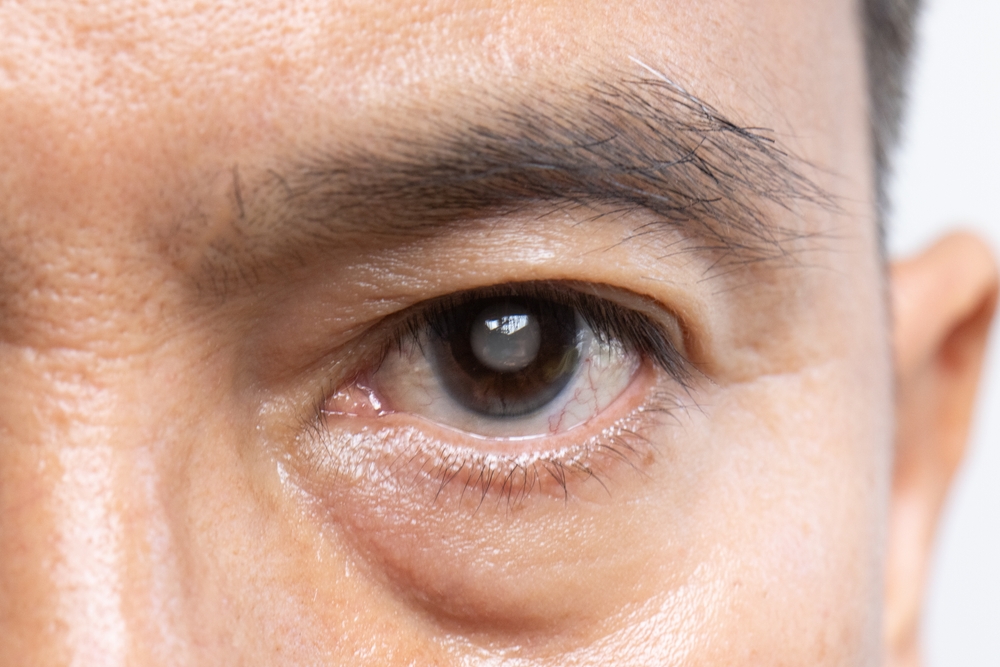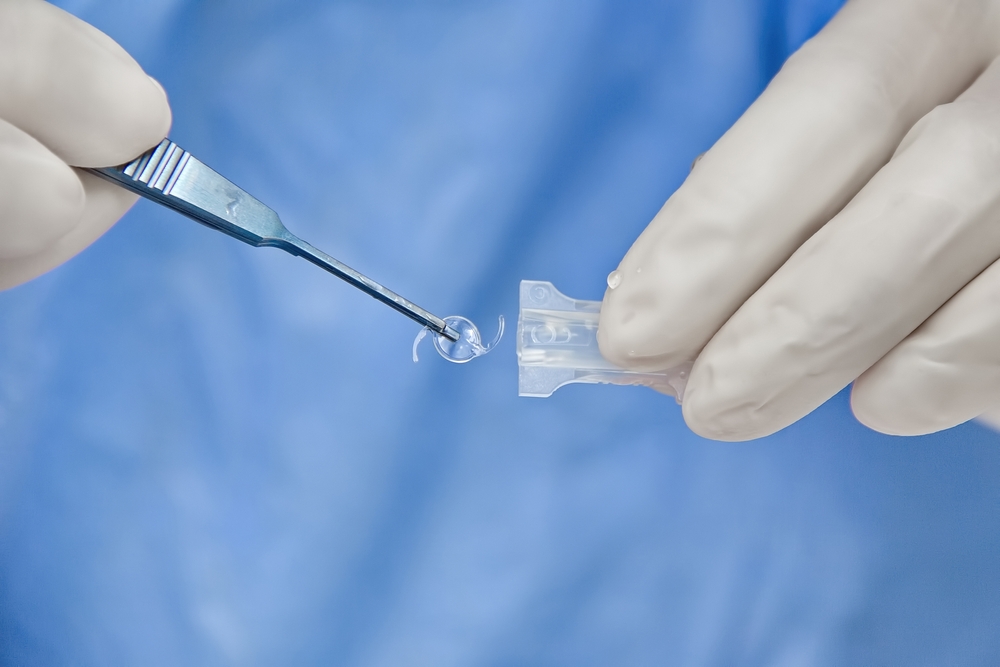
Updated: September 05, 2025
Are you squinting more often when reading? Having trouble driving at night because of glare? Finding that new glasses don’t seem to help your vision like they used to?
If these scenarios sound familiar, you might be wondering if it’s time to consider cataract surgery. The truth is, there’s no one-size-fits-all answer, but knowing the signs and timing can help you make the best choice for your vision and lifestyle.
Keep reading to learn more about cataract surgery and when it may be time to restore your vision with this advanced procedure.

Cataracts happen when the natural lens inside your eye becomes cloudy. Think of it like looking through a foggy window where everything appears blurred or dim.
Each person is born with clear, flexible lenses, but over the decades, normal wear and tear causes them to gradually yellow and cloud up. This natural aging process typically begins after age 50, though it can occur at any age.
As cataracts develop, you may notice several changes in your vision. The lens loses its ability to focus properly, and you might find yourself needing more light to read or experiencing increased glare from headlights while driving at night. Without treatment, cataracts will continue to progress and eventually cause significant vision loss.
The decision to have cataract surgery isn’t based on age alone. It’s more about how your vision changes are affecting your daily life.
Here are the key indicators that it might be time to discuss surgery with your eye doctor:
One of the most telling signs is when your vision problems can’t be corrected with a new glasses prescription. While normal aging might require stronger reading glasses or bifocals, cataracts cause vision changes that glasses simply can’t fix.
When cataracts start interfering with activities you enjoy or need to do, it’s time to consider surgery. This might include difficulty reading, even with good lighting, problems driving, especially at night, due to glare from headlights, or feeling like you’re looking through a film or smudge.

Watch for these common cataract symptoms:
There’s no universal “right time” for cataract surgery. It’s a personal decision based on how your vision affects your lifestyle. The average age for cataract surgery is around 68-69, but this varies significantly from person to person.
Some factors that might influence your timing are:
Insurance companies, including Medicare, typically cover cataract surgery when the condition reaches a level of “medical necessity.” This determination is made through a comprehensive eye examination and assessment of how your symptoms affect your daily life. You don’t need to wait until you can barely see. If cataracts are significantly impacting your quality of life, you’re likely a candidate for surgery.
While cataracts won’t cause permanent damage to your eye, waiting too long can make surgery more complicated. Very advanced cataracts become harder and more difficult to remove, potentially increasing surgical risks and recovery time.
Also, living with poor vision increases your risk of falls, accidents, and depression.
Some patients worry that they should wait as long as possible, but this outdated thinking can unnecessarily limit your quality of life. Modern cataract surgery is highly refined and safe, with most patients experiencing immediate improvement in their vision.

Cataract surgery is typically performed as an outpatient procedure using topical anesthesia (numbing drops). The cloudy lens is gently removed and replaced with a clear, artificial lens implant made of durable materials designed to last a lifetime.
Patients today have many choices when it comes to lens implants, and your doctor will help you select the option that best fits your lifestyle and visual goals. With advanced lens technologies, many patients find they can see better than ever with significantly reduced dependence on glasses or contact lenses.
Most patients notice improved vision almost immediately, with full recovery typically occurring within one to two weeks. Many return to work the next day, though you’ll need someone to drive you home after surgery.
Cataract surgery should be considered when your vision changes start interfering with activities that are important to you. Whether that’s reading, driving, working, or enjoying hobbies, you don’t have to accept poor vision as an inevitable part of aging.
If you’re experiencing vision changes that might be related to cataracts, don’t wait to seek evaluation. Schedule a cataract evaluation at Discover Vision Centers in Kansas City, MO, today!
We are closed Monday (05/25)! Urgent Care is also closed Saturday (05/23)!
We are closed Friday (07/03)!
We are closed Monday (09/07)! Urgent Care is also closed Saturday (09/05)!
We are closed Thursday (11/26) and Friday (11/27)! Urgent Care is also closed Saturday (11/28)!